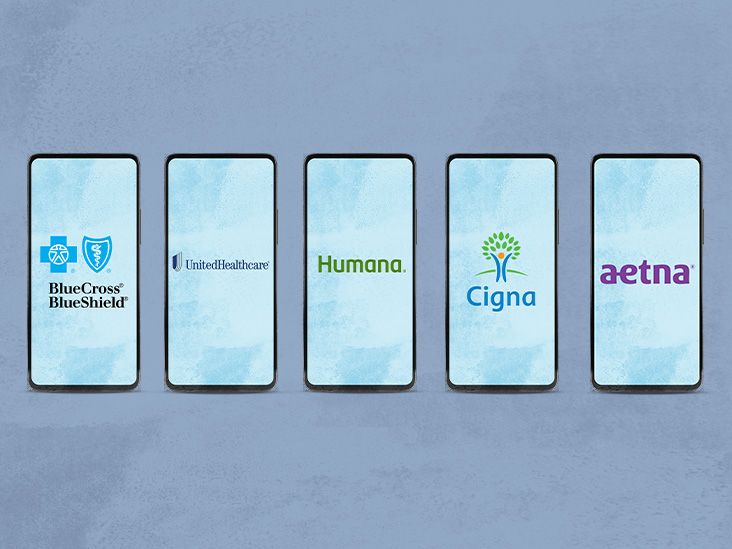Hey there! Let's talk about something that's probably sitting in your wallet right now but you haven't really thought about your Medicare card. I know, I know... it's not exactly the most exciting topic, but trust me, understanding your Medicare card types can save you from some pretty stressful situations down the road.
Think of your Medicare card like your backstage pass to healthcare. Without it, things can get pretty complicated pretty quickly. Whether you're just turning 65, helping a loved one navigate Medicare, or you've simply misplaced your card, knowing what you're dealing with makes all the difference.
So grab a cup of coffee, get comfortable, and let's break down everything you need to know about Medicare cards in a way that actually makes sense and feels like we're just having a friendly chat.
Understanding Your Medicare Cards
Let's start with the basics. You might think all Medicare cards look the same, but that's like saying all driver's licenses are identical they're not! There are actually several different types of Medicare cards, and each one serves a different purpose in your healthcare journey.
Picture this: You're at a doctor's office, and they need to know which insurance to bill. That's where knowing your specific card type comes in handy. It's not just about having a card it's about having the right card for the right situation.
The Original Medicare Card
Your Original Medicare card is like the foundation of your healthcare coverage. This red, white, and blue card represents Medicare Parts A and B, which cover hospital insurance and medical insurance respectively. If you're enrolled in Original Medicare, this is probably the card you reach for most often.
I remember when my neighbor Sarah first got her Medicare card she was so excited to finally have her "real" healthcare ID. It's a milestone, really. This card is automatically sent to you if you're already receiving Social Security benefits about three months before your 65th birthday. If you're not, you'll get it within a couple of weeks after signing up.
Medicare Advantage Cards
Now, if you've chosen a Medicare Advantage plan (Part C), you'll have a different card from your private insurance company. This can sometimes be confusing because you'll still have that original red, white, and blue card, but you typically use your Medicare Advantage card instead for most services.
Think of it like having a primary and backup credit card you have both, but you use one much more frequently. Just make sure to keep that original Medicare card somewhere safe, kind of like keeping an old photo album in your closet you don't need it every day, but you'll be glad you have it when you need it.
Part D Prescription Cards
If you take medications regularly, you'll probably have a separate card for your Part D prescription drug plan. This is the one you'll want to flash at the pharmacy counter. It's amazing how this little piece of plastic can save you hundreds of dollars on medications each year.
I've seen friends completely forget about this card and end up paying full price for prescriptions they could have gotten for $10. A simple swipe of the right card makes all the difference!
Medigap Cards
And then there are Medigap cards these are from private insurance companies that help cover costs that Original Medicare doesn't pay. If you have one of these, bring it along to appointments so providers can bill the right insurer for those remaining costs.
Getting Your Medicare Card
So when exactly do you get this important piece of plastic? Well, it depends on your situation, but let me break it down for you.
If you're already collecting Social Security or Railroad Retirement Board benefits at least four months before turning 65, Medicare will automatically enroll you and send your card about three months before your birthday. It's like getting a birthday present, except instead of socks, you get healthcare coverage!
But what if you're not automatically enrolled? No worries once you sign up, you should receive your card within about two weeks. The key here is making sure your paperwork is in order. According to Medicare's official website, this timeline is pretty consistent if you enroll during your Initial Enrollment Period.
What If You're Not 65?
Here's something not everyone knows: you don't have to be 65 to qualify for Medicare. People under 65 with certain disabilities, End-Stage Renal Disease (ESRD), or ALS can also get Medicare cards. The enrollment process is a bit different, but the cards serve the same essential purpose.
I have a friend who qualified for Medicare at 50 due to a disability. She was surprised but relieved to learn that the system could work for her situation too. Medicare really is designed to help people when they need it most.
What's On Your Medicare Card?
Have you ever really looked at your Medicare card? I mean, really looked at it? There's more information there than just your name and a number.
Your Medicare Number
One of the most important pieces of information on your card is your Medicare number. In recent years, Medicare stopped using Social Security numbers on cards, which is a huge win for preventing identity theft. Instead, you'll see a unique Medicare number that's specific to you.
This number is like your healthcare fingerprint it's how providers identify your specific coverage and billing information. Never share this number unless you're dealing with legitimate healthcare providers or insurers you trust.
Start Dates and Coverage
Your card will also show when your Parts A and/or B coverage began. This can be important if you ever need to verify your enrollment dates or if there's a question about when your coverage kicked in.
For those receiving Railroad Retirement benefits, there's a special label on the card indicating your affiliation. It's these little details that make Medicare work for everyone's unique situation.
Why You Should Always Carry Your Card
Let me ask you something do you carry your Medicare card with you? If not, you might want to reconsider. Here's why:
At doctor visits, hospital stays, and even pharmacy pickups, you'll need to show your card. It's how providers know which insurance to bill and ensures you're getting the coverage you've paid for. Without it, you might end up paying more out of pocket or dealing with billing headaches later.
I once helped my aunt sort out a billing mess because she'd forgotten her card at a specialist appointment. It took months to get everything straightened out! A simple card could have saved her a lot of stress.
Keeping Your Medicare Card Safe
Just like your Social Security card or driver's license, your Medicare card needs protection from the wrong hands. Identity theft is real, and Medicare cards can be targets.
Here's a golden rule: never give out your Medicare number unless you're dealing with trusted healthcare providers or insurers. Medicare will never call you unexpectedly asking for sensitive information if someone does, it's likely a scam.
I always recommend keeping a copy of your card in a secure place, maybe in a locked drawer or safety deposit box. That way, if your physical card is lost or stolen, you have the information you need to replace it quickly.
Replacing Your Medicare Card
Let's face it we've all misplaced important cards at some point. If your Medicare card is lost, damaged, or stolen, don't panic. Getting a replacement is easier than you might think.
Online Replacement
The fastest way is often online through MyMedicare.gov. You can log into your account and either print a temporary card or request a new official one be mailed to you. It's like ordering groceries online convenient and quick.
Phone Replacement
If you prefer to talk to a real person, you can call 1-800-MEDICARE (1-800-633-4227). They're friendly folks who can help you get a replacement card sent by mail. TTY users can reach 1-877-486-2048, and if you receive Railroad Retirement benefits, there's a special number just for you: 1-877-772-5772.
The whole process usually takes about 30 days, so if you need it sooner, the online option is definitely the way to go.
When Life Changes Happen
Life throws curveballs, and sometimes that means changes to your name or personal information. If your name changes after you've received your Medicare card, you'll need to update it.
The process starts with the Social Security Administration, where you'll need to update your name first. Once that's done, you can confirm the change reflects on your Medicare card through MyMedicare.gov or by calling the Medicare helpline. It's a small step that makes a big difference in avoiding confusion later.
Fraud and Identity Theft
If you ever suspect Medicare fraud or identity theft involving your card, don't wait report it immediately to 1-800-MEDICARE. You should also contact the Federal Trade Commission for identity theft concerns. Local resources like the Senior Medicare Patrol can be invaluable in identifying suspicious activity.
It's better to be safe than sorry. I've seen too many seniors who ignored warning signs and ended up with much bigger problems down the road.
Medicare Enrollment Age and Timing
Most people become eligible for Medicare at age 65 this is considered the official Medicare enrollment age. Your Initial Enrollment Period starts three months before your birth month and ends three months after. It's a seven-month window to get everything sorted out.
But here's what's interesting: you can delay getting your Medicare card if you don't want Medicare yet. Maybe you're still working and have great group coverage, or perhaps you have other insurance that's working well for you. That's totally fine just be aware that delaying could mean penalties later unless you're under special circumstances.
I had a client who was 68 and still working full-time. She didn't realize she needed to enroll in Medicare when she turned 65 because she had good employer coverage. When she finally needed to switch, she faced late enrollment penalties that could have been avoided with better planning.
Making Sense of Medicare Card Mailing
Wondering about Medicare card mailing timelines? The system is actually pretty efficient once everything is in place. If you're automatically enrolled, expect your card about three months before your birthday. For those who sign up manually, it's typically within two weeks.
The U.S. Postal Service delivers millions of Medicare cards each year, and the system has gotten quite reliable over the years. If you haven't received your card within the expected timeframe, a quick call to Medicare can usually clear up any confusion.
Final Thoughts on Your Medicare Journey
Understanding your Medicare card types isn't just about memorizing acronyms and card colors it's about empowerment. When you know what you have and how to use it, you're in control of your healthcare experience.
Think of your Medicare card as a tool, not just a piece of plastic. It's your key to preventive care, treatments, medications, and peace of mind. Whether you're just starting your Medicare journey or you've been navigating it for years, taking the time to understand your cards pays dividends in confidence and care quality.
The healthcare landscape can feel overwhelming sometimes, but remember you're not alone in this. There are resources, help lines, and community programs designed to assist you. Don't hesitate to ask questions, seek help, or reach out to your State Health Insurance Assistance Program if you're ever unsure.
Your health matters, and so does understanding how to navigate the system that's supposed to help you maintain it. So keep those cards safe, know which ones to use when, and remember that being informed is your best defense in getting the care you deserve.
What questions do you still have about Medicare cards? I'd love to hear about your experiences or help clear up any confusion. After all, the more we talk about this, the more comfortable and confident we all become.
FAQs
What are the main types of Medicare cards?
There are four main Medicare card types: Original Medicare (Parts A and B), Medicare Advantage (Part C), Part D prescription drug cards, and Medigap cards. Each serves a specific role in your healthcare coverage.
Do I need to carry my Medicare card with me?
Yes, it's important to carry your Medicare card when visiting doctors, pharmacies, or hospitals. Providers need it to bill the correct insurance and ensure you receive your entitled benefits.
How do I get a replacement Medicare card?
You can request a replacement Medicare card online at MyMedicare.gov or by calling 1-800-MEDICARE. Replacement usually takes about 30 days, but temporary cards can be printed online immediately.
Can I have more than one Medicare card?
Yes, many people have multiple Medicare cards if they're enrolled in Original Medicare plus a Medicare Advantage plan, Part D, or a Medigap policy. Each card is used for its specific coverage type.
When will I receive my Medicare card?
If you're automatically enrolled, you'll receive your Medicare card about three months before your 65th birthday. If you sign up manually, expect it within two weeks after enrollment.
Disclaimer: This article is for informational purposes only and does not constitute medical advice. Always consult with a healthcare professional before starting any new treatment regimen.
Related Coverage
Get free Medicare enrollment assistance and find the best coverage for your needs. Expert help is just a call away....
Explore the most common health challenges facing senior citizens and learn effective strategies for managing age-related conditions and maintaining well-being as you get older....
Learn if Medigap Plan N is right for you. Compare benefits, costs, and coverage of Plan N vs. other Medigap options....
Medicare Plan G explained: monthly premiums, coverage gaps it fills, pros & cons, and who benefits most—all in plain terms....
Doing crossword puzzles and word games regularly helps maintain mental sharpness while providing physical health benefits that support healthy aging across areas like memory, mood and lifespan....
Find out how Medicare caregiver coverage works, who qualifies, what services are paid, and tips to avoid costly surprises....
Get Medicare Part D plans for 2025, compare costs, formularies, pharmacy networks, and the new out‑of‑pocket cap to save money....
Get clear info on Medicare geriatric care coverage, including what's included, what's not, and how to maximize your benefits....
Medicare funeral coverage isn't included in standard plans. Find out what options exist to help with end-of-life costs....
Find the right Nebraska Medicare plans that fit your health needs and budget. Compare options and make informed decisions....









